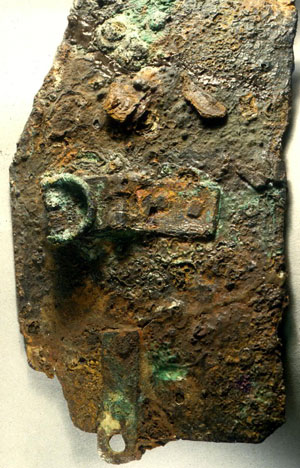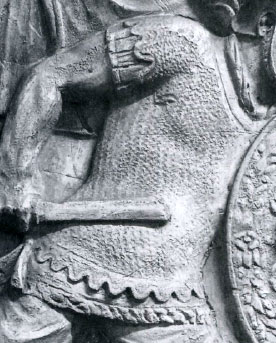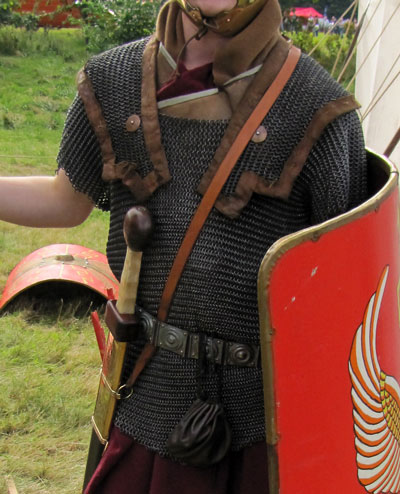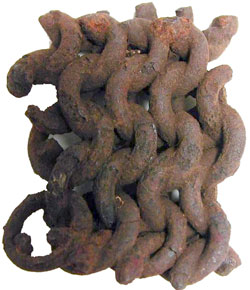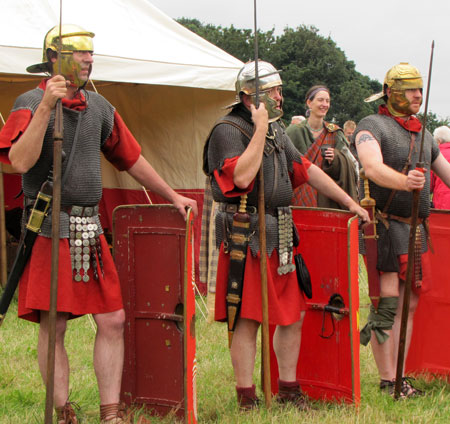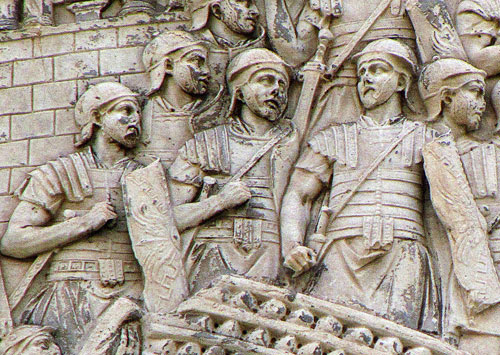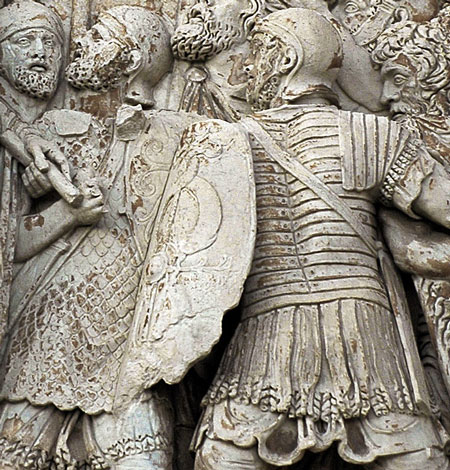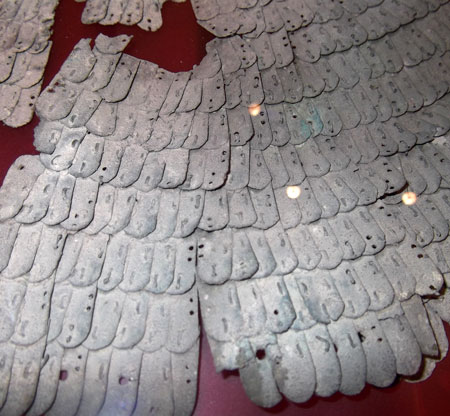|
Body Armour Roman soldiers wore armour to protect their bodies and shoulders. There are a few different types. Ordinary legionaries of the 1st century AD (when the Romans conquered Britain) wore armour made of metal plates fixed together. We call this lorica segmentata (a modern name - we don't know what the Romans called it). More important soldiers like officers and emperors wore a metal suit shaped to the body which we call a muscle cuirass (because it shows the muscles). Auxiliary soldiers (who were not Roman citizens) usually wore chain mail, made from lots of small metal rings joined together. This was called lorica hamata. Some soldiers also wore armour made of scales, like a fish, called lorica squamata. Lorica Segmentata The photo to the right shows a man wearing lorica segmentata, armour made of iron bands wrapped around the chest and over the shoulders. This armour gave good protection and allowed some movement. Also the strips of metal could be replaced if they got damaged. The bands were fixed together with leather strips on the inside, as well as hinges on the shoulders, and buckles to attach the shoulders to the chest. The chest bands were fixed together at the front and back with leather thongs passed through bronze loops. Lorica segmentata is shown on stone carvings like Trajan's column in Rome (see right). A suit was found at Corbridge (a Roman town near Hadrian's Wall) in 1964. It was rusted, but in good enough condition to show us how the armour was made. The photos below show the armour (the left side is a modern reconstruction). It was made some time between AD122 and 138, during the reign of Emperor Hadrian.
The Corbridge armour
A section of the Corbridge armour
Chain Mail
Chain mail, or lorica hamata, was made of lots of small iron rings linked together. The Romans and Celts were the first to wear chain mail, and it remained popular right up to the middles ages.
Auxiliary soldiers, who were not Roman citizens but still fought for Rome, usually wore chain mail. It was very flexible and allowed a lot of movement in battle.
An auxiliary soldier wearing chain mail
A reenactor wearing chain mail
Roman chain mail - you can see the joins in the rings, where they were closed over each other.
Reenactors wearing chain mail |
Muscle Cuirasses |
|
|

